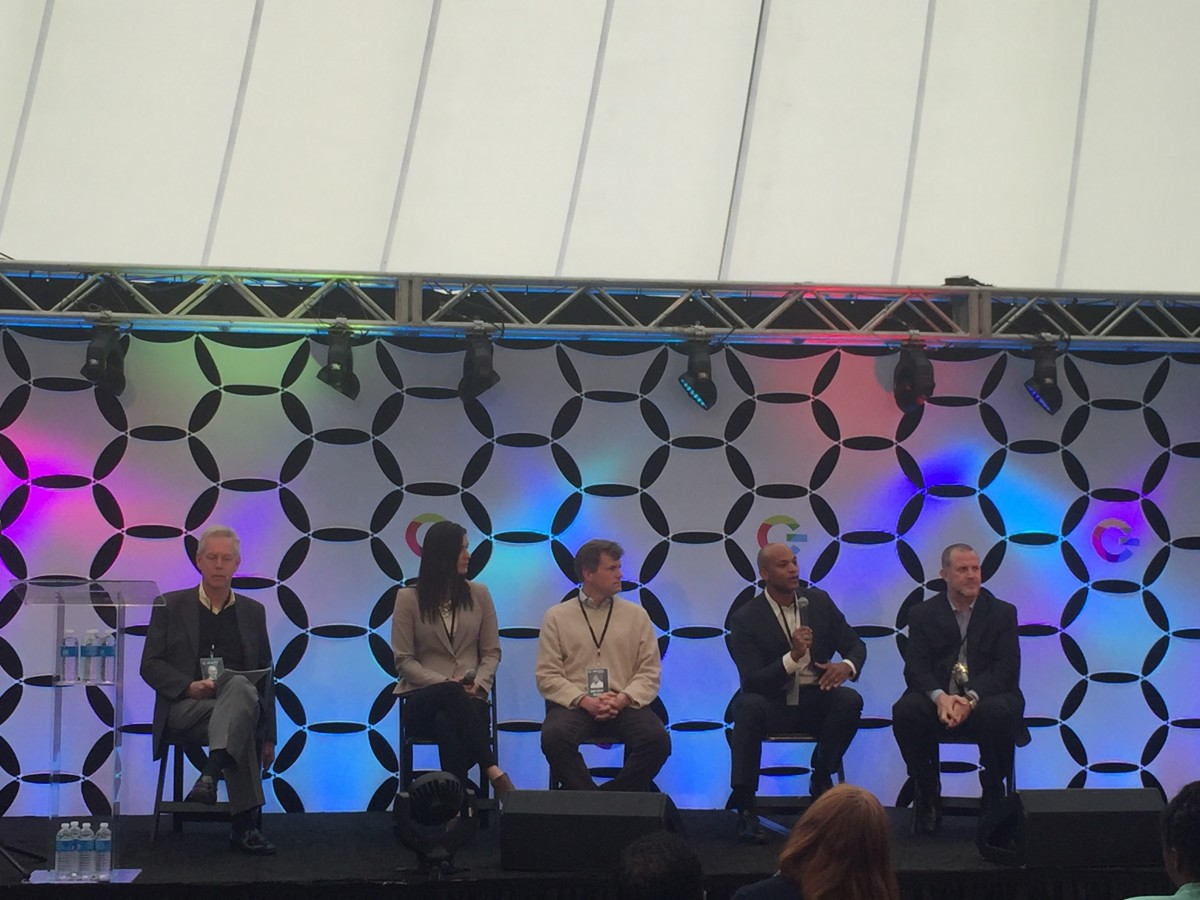The city and the couple who founded Light City Baltimore are digging in with their dispute over who owns the naming rights to the festival.
In October, the city and the Baltimore Office of Promotion and the Arts filed a lawsuit in U.S. District Court against Brooke Hall and Justin Allen, who created the festival. On Friday, Hall and Allen filed a countersuit to the city, seeking a jury trial.
The sides are going to court to settle a dispute over the naming rights and trademark that emerged following the inaugural edition of the light, music and innovation festival last spring.
Court filings in the case state Hall, who owns What Works Studio, and Allen came up with the idea for a large light-centered festival that would showcase the ideas and creativity in Baltimore in 2010. As work and momentum continued, it was touted as a festival that could succeed the Baltimore Grand Prix as a centerpiece event that would attract outside attention for the city and improve its image.
In 2014, Hall and Allen entered into a partnership with BOPA to produce the event. About two years later, the first edition of the weeklong festival garnered $3 million in sponsorship, and drew in 400,000 visitors. When it came to the festival itself, filings indicate BOPA produced the light and music portion, while What Works Studio organized the innovation conferences, and developed the logos, website and other branding.
After the festival, BOPA Executive Director Bill Gilmore said a dispute arose over the ownership that went on for six months prior to the filing. The organization states that it owns the naming rights as the organizing entity, and first to use the names “in commerce.” The city filed applications to register the Light City trademarks, but Hall and Allen filed an extension in opposition of that move.
“You have to be able to own or control your product,” Gilmore said, adding that BOPA owns rights to other events that it produces, like Artscape and the Baltimore Book Festival. BOPA’s lawsuit offers one contract that states BOPA would retain rights to the logos and trademarks, while another states that BOPA and What Works would agree to discuss ownership after the festival. In a separate statement, Gilmore said that Hall and Allen have misrepresented their ownership and “started to use these marks for their own benefit.”
The filings also include criticism of the festival itself. BOPA’s filings state the organization took over bookings of the conference prior to the festival because it was not pleased with What Works Studio’s progress, while Hall and Allen say BOPA “hindered the conference planning.”
Hall and Allen contend that “the curation and placement of installations that comprised the light art walk experience was underwhelming.” They also state that it was “fiscally irresponsible” for the festival to spend $400,000 more than the amount raised.
In an open letter published Monday on davidandgoliath.info, Hall and Allen said BOPA “represented and promised to us that we would remain in control of the Light City conferences” before the agreement to enter into the contract.
They said their lawsuit is about “standing up to those in power who think they can take whatever they want from whoever they want without consequence.”
“By not honoring their word, attempting to take what’s not theirs, and then suing us in an unnecessarily public way, BOPA is in direct opposition to the spirit of Light City,” they wrote. “With this lawsuit, BOPA has diminished the potential of Light City and the goodwill associated with it.”
But planning for the 2017 festival, which is slated for March 31-April 7, is moving forward without Hall and Allen.
“We’re working full blast on the festival for 2017 right now,” BOPA’s Gilmore said.
The organization decided to move conference planning, marketing and other contract work “in-house.” The name of the conference portion also changed to Labs@LightCity. On Friday, BOPA opened registration and announced a lineup of speakers including chef and author Marcus Samuelsson, scientist Siddhartha Mukherjee and spoken-word poet Donovan Livingston, among others.
Before you go...
To keep our site paywall-free, we’re launching a campaign to raise $25,000 by the end of the year. We believe information about entrepreneurs and tech should be accessible to everyone and your support helps make that happen, because journalism costs money.
Can we count on you? Your contribution to the Technical.ly Journalism Fund is tax-deductible.
Join our growing Slack community
Join 5,000 tech professionals and entrepreneurs in our community Slack today!



